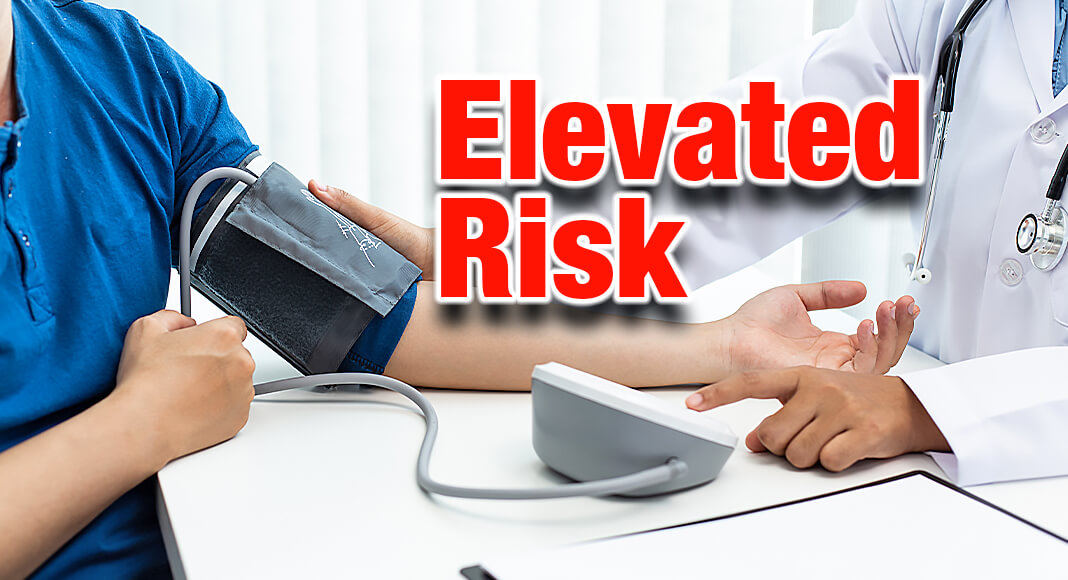
Mega Doctor News
Cedars Sinai – Hypertension more than doubles the risk of hospitalization related to Omicron infection, even in people who are fully vaccinated and boosted, according to a new study led by investigators in the Smidt Heart Institute at Cedars-Sinai. The findings are published in the journal Hypertension.
The risk is especially widespread given that nearly 1 out of every 2 adults in the U.S. have hypertension, according to the U.S. Centers for Disease Control and Prevention.
“The take-home message is that avoiding infection is extremely important—even when the circulating viral variant is presumed to cause mild disease in most people,” said Joseph E. Ebinger, MD, a clinical cardiologist and director of clinical analytics at the Smidt Heart Institute and first author of the study.
By reviewing electronic medical records, Cedars-Sinai investigators identified 912 people who were fully vaccinated with an mRNA vaccine, received a booster shot and were subsequently diagnosed with COVID-19 during the Omicron surge that occurred in Southern California from Dec. 1, 2021 through April 20, 2022. Of these individuals, 145 required hospitalization.
“We were surprised to learn that many people who were hospitalized with COVID-19 had hypertension and no other risk factors,” said Susan Cheng, MD, MPH, director of the Institute for Research on Healthy Aging in the Department of Cardiology at the Smidt Heart Institute and a senior author of the study. “This is concerning when you consider that almost half of American adults have high blood pressure.”
The team also found that chronic kidney disease, having had a heart attack, or heart failure, greatly increases the risk of hospitalization after infection.
“These findings were expected considering that these are chronic medical conditions that are well established to be associated with worse outcomes,” said Ebinger, an assistant professor in the Department of Cardiology in the Smidt Heart Institute.
Because hypertension is common in people with chronic kidney disease, heart attack and heart failure, the investigators conducted an analysis that excluded patients diagnosed at some point with these conditions. The risk for hospitalization was still substantial for people diagnosed with hypertension alone.
The risk of being hospitalized with COVID-19 also increased with age and duration between a study participant’s last vaccination and infection. Hypertension, however, was associated with the greatest magnitude of risk: 2.6-fold.
These findings extend reports from early in the pandemic that also found associations between hypertension and severe COVID-19. Notably, the researchers found that conditions such as obesity and diabetes, risk factors identified early in the pandemic, were not as strongly associated with hospitalization during the Omicron surge. The hypertension risk, however, persisted. More research is needed to understand the biological processes that may cause more severe COVID-19 illness in people with hypertension, and how to reduce this risk.
“Uncovering why hypertension is linked to COVID-19 could help us better understand how SARS-CoV-2 affects the body and provide clearer targets for prevention and treatment,” said Cheng, the Erika J. Glazer Chair in Women’s Cardiovascular Health and Population Science at Cedars-Sinai.
Meanwhile, people with hypertension who develop COVID-19 should be aware of their heightened risk for hospitalization and talk to their physician about antiviral therapy, according to Ebinger.
Other Cedars-Sinai investigators who worked on this study include Matthew Driver, MPH; Sandy Joung, MHDS; Teresa Tran; Denisse Barajas; Min Wu, MPH; Patrick Botting, MSPH; Jesse Navarrette, MPA; and Nancy Sun, MPS.
Funding: The study was funded by Cedars-Sinai Medical Center, the Erika J Glazer Family Foundation and the National Institutes of Health (award numbers R01-HL131532 and K23-HL153888).










